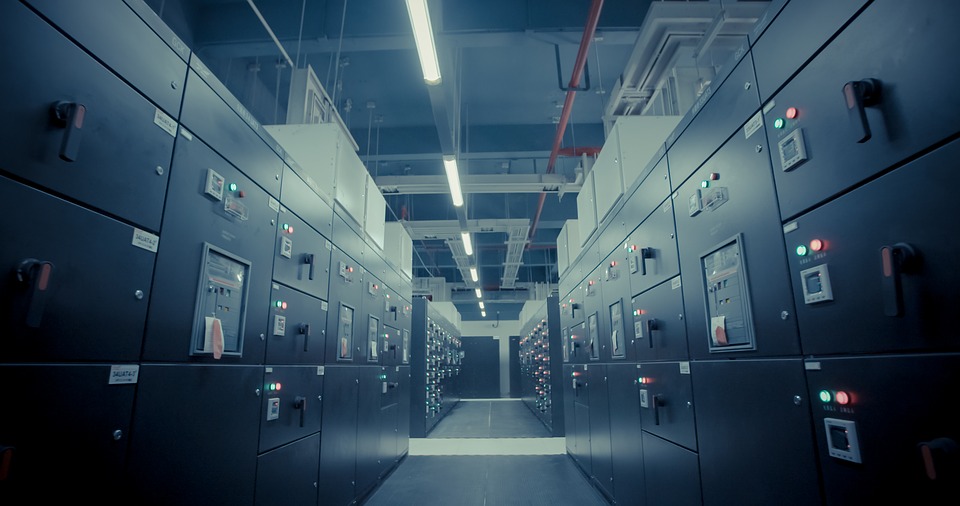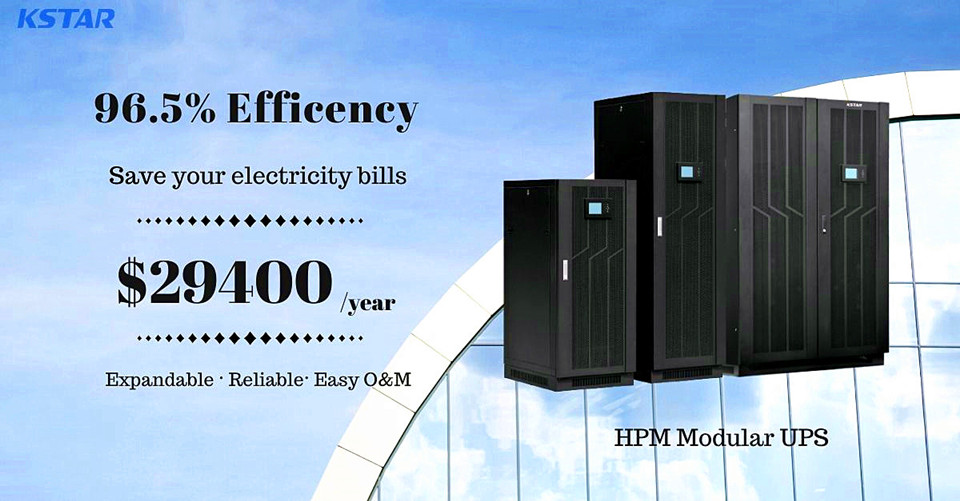

Data center UPS:How to select the right UPS for your data center?
UPS system providing vital protection against power disruptions is the critical component of a data center as electrical power is not stable and various electrical anomalies can interrupt a server operation. To ensure everything runs smoothly in the data center at all times, facilities managers have to selecte a reliable ups system. It is a complex decision. So, here's an easy-to-understand guide on how to select a right UPS system for your data center.

1.Select UPS systems that support parallel operation.
It is also called "+1 redundant " as two UPS systems are running in paraller. This way it not only allows for greater runtime but also provides greater reliablity because other batteries in parallel fail, UPS power will still be available. If multiple UPS systems can be configured in parallel, it's called an N+1 architecture,where N devices supply the required load and 1 means there is one independent backup should a component of that system fail.
2.Select UPS systems with good battery performance
Battery is the heart of a UPS. To ensure reliable UPS performance, you have to continuously monitor the battery stack. So choosing a UPS packed with excellent battery and battery management technology can solve a lot of problems. Hot-Swappable Batteries for example can help maintains work more easily.
3.Select UPS systems with lower PUE&high-efficency
During the last decade, UPS systems have entered the market of green energy-saving. By lowering power usage effectiveness (PUE) , combined with the promise of high-efficiency operations can help reduce the pressure on data center OpEx. It is no doubt that the more inefficient the system, the higher it will cost a company on its power bill. When choosing a UPS system, companies should make sure to choose one that meets all of their needs, yet also offers the best possible efficiency.
4.Select UPS systems that is scalable as business grow
Choose a UPS which can scale power and runtime as demand grows or as higher levels of availability required. It can help you save the money of update your data center. UPS with modular architecture has advantages in this regard.
The trend of modular UPS applicated for data center
For years, data centers have used multiple high capacity UPS systems to obtain “N+1” redundancy and ensure high availability of power for their critical systems. But this method is inefficient (if all of the UPS unit's capacity isn't needed). It can waste capital, and is not environmentally friendly. So smaller modular UPS systems that can scale with load demand soon become a popular choice. Modular UPS systems are one of the fastest-growing products in the 3 phase UPS industry, expecting to reach an estimated $2.5B in sales by 2020.
The benefits of modular UPS
●Simple installation, convenient expansion,investment-saving ;
●Parallel redundancy, stable operation, high reliability;
●Easy maintenance, hot-swappable, online processing;
●Smaller size, easy for transportation;

The disadvantages of modular UPS
●Higher Initial Investment:20%-30% expensive than traditional ups;
●Limited Output power;
To ensure that critical equipment has a steady supply of clean, uninterrupted electricity, choosing the right UPS for your data center is an important step. There isn't a single “best” UPS battery technology – the choice should be made on a case-by-case basis. If you are still confused about the choice, you had batter analyze and communicate with your UPS supplier.Finally, you can definitely choose the right UPS!
